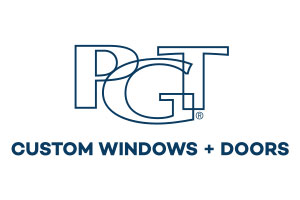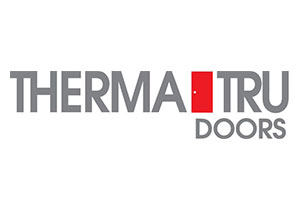Do impact windows save energy?
Yes. Options like Low E glass, heat-reducing tints, and laminated insulating glass provide an additional barrier to keep those outside temps outdoors.
Windows can be the most vulnerable area of your home when it comes to energy efficiency. They can be the greatest source of heat gain or loss within your home. This will lead to increased energy bills and adversely affect your thermal comfort. Impact windows block 99% of transmitted UV light, which can be especially helpful to energy bills in the sunshine state. Impact windows can help Florida residents save approximately 40% on cooling costs. Additionally, the stronger framing materials used with impact windows also provide superior draft protection.
If you're seeking optimal energy savings, ask us about glass with lower U-factor (measure of heat transfer) and Solar Heat Gain Coefficient, or SHGC, (how effectively the window blocks solar heat). The lower the U-factor and SHGC ratings, the more energy efficient a window is.
Energy Efficient Windows Basics
First, it's essential to understand the factors that influence energy efficiency. When you install new windows, you expect them to provide improved energy efficiency. You can enhance their effectiveness by keeping the following factors in mind.
The Type of Glass
Some glasses are more efficient in keeping energy costs down than others. For example, dual-pane glass provides better insulation than single-pane glass. Triple-pane glass is the best at maximizing energy efficiency. Dual or triple-pane glasses can be enhanced with inert gas between the panes to increase the insulation properties. You may also wish to opt for tinted, tempered, laminate, or obscure insulating glass for increased energy efficiency.
The Installation Process
When windows are installed correctly, they significantly prevent air infiltration. They also prevent costly water damage to the interior of your home. On the contrary, poorly installed windows don't operate as they should. Some of the issues to check include the plumb, level, reveal, square, and bowing to determine proper installation. The best thing is to have an expert do the inspection for you for a comprehensive report.
Window Placement
Another way to improve your windows' energy efficiency is to use Low-E (Low-Emissivity) glass coatings. They're designed as layers of thermal protection and installed inside insulating glass to serve as:
- Reflectors of summer heat to help maintain a cool interior
- Reflectors of winter cold to retain heat in the interior
- Blockers of harmful UV rays to prevent fade damage
Wood Frame Construction
The material used for the window frame plays a role in overall energy efficiency. Wood windows, for example, are perfect for enhanced energy efficiency. Wood is a poor heat conductor, meaning that it transfers minimal heat or cold to your home. Another efficient material to use is fiberglass, as it offers the same insulation properties as wood. The most durable fiberglass windows are made from thermoset material that doesn't break or meltdown due to temperature changes. Multi-chambered vinyl frames also serve to reduce heat loss for improved energy efficiency. Multiple chambers filled with air are your best bet for efficient insulating properties.
Update the Windows to Improve Efficiency
Some practical steps you can take to improve the efficiency of your windows include:
- Checking them for air leaks
- Adding window treatments and coverings
- Caulking and weather-stripping
- Installing storm panels or windows
- Adding a solar control film
- Adding exterior shading like awnings, overhangs, or external blinds
With any efficiency improvement approach you use, ensure a professional does the job for a long-lasting outcome.
Window Replacement
You may decide to overhaul your window system by doing a complete replacement. You can replace the windows in the existing frame but first, discuss with the installer. Depending on what you decide, you'll need to consider:
- The frame types
- Gas fills and spaces
- Operation types
- Glazing type
In choosing new windows, always consider choosing those with the Energy Star label. Ensure you also evaluate the National Fenestration Rating Council's energy performance ratings for the most efficient windows.
Windows with energy efficiency use a rating scale from A++ to E. The rating assesses both the glass and frame to indicate the impact of having that window in your home. For the most efficient windows, choose those with a rating of BFRC. Also, keep in mind that an A+ rated window is more efficient than a C-rated one.
If a window has a higher energy rating, it also has a U-value, reflecting how easy it is for heat to pass through. This overall rating is the best indication of how much energy the window is likely to save. If all this sounds too intricate for you to understand, always let a professional installer guide you.
Benefits of Window Efficient Windows in Your Home
Having energy-efficient windows provides more benefits than just reducing your power bills. They also minimize condensation, which ultimately prolongs the windows' life. This reduces the probability of replacing windows in the short-term, hence saving you money.
Increased Comfort
Installing energy-efficient windows contributes to your home's overall comfort. They reduce or eliminate cold breezes hence making your home more habitable.
Reduced Noise
One under-recognized benefit of energy-efficient windows is noise reduction. They provide additional sound insulation by blocking noise from outside. They muffle traffic noise and sound from airplane engines for a more peaceful home.
Hurricane Safety
When installing or replacing windows for your home, you should consider using storm windows. They're the most energy-efficient options available, keeping your home safe and comfortable amid extreme weather and temperatures.
Besides, weather-stripping and caulking go a long way in providing a tighter seal. This reduces the drafts of cold air by blocking the small gaps between the glass and window frame. Weather-stripping works best for the moveable parts of the window.
Improved Resell Value
Having energy-efficient windows in your home helps increase its resale value. Energy efficiency is an essential factor that buyers consider before purchasing a home. Modern energy-efficient windows also look attractive and improve your home's curb appeal.
Final Thoughts
As you build or upgrade your home, always consider the energy-efficiency of the windows. There are many window options available, but they don't all work the same way. While the best window option depends on the climate of where you live, there are also several other factors to consider. At AOA, we can guide you on how to choose the best windows and help you install them correctly.









